Here is a list of the most common verbs in Moroccan Arabic (with audio), containing more than 200 verbs, it’s essential for Darija learners who would like to expand their vocabulary and express their ideas more comfortably.
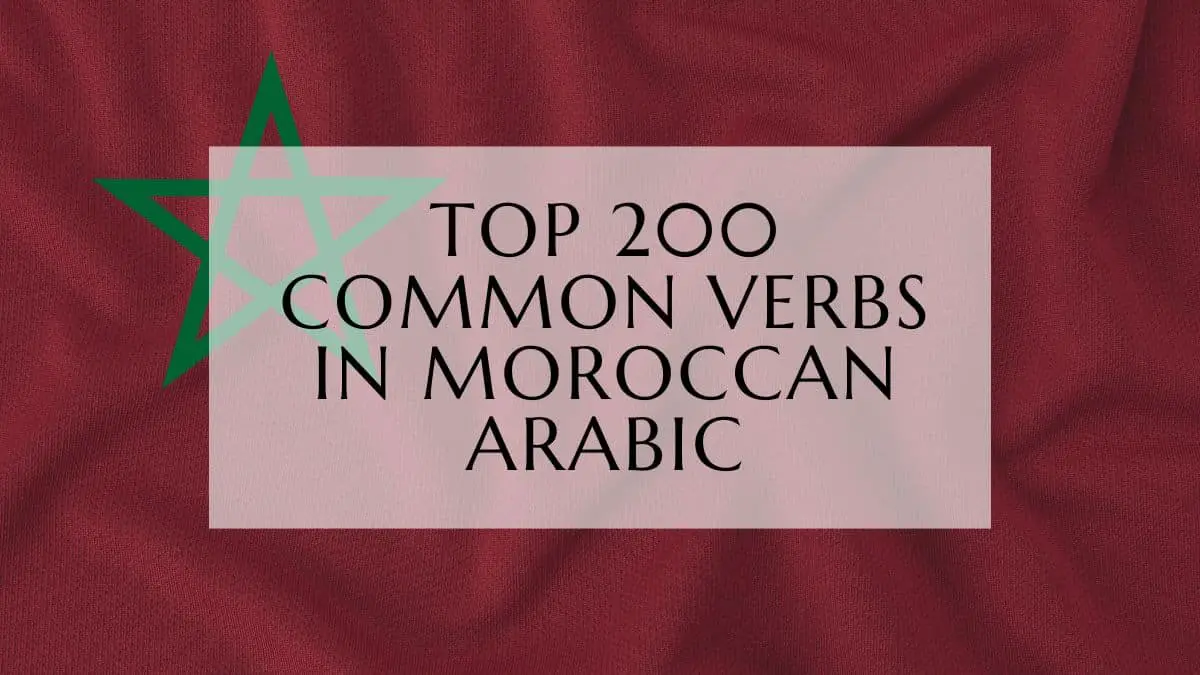
Most Common Verbs In Moroccan Arabic
| English | Transcribed Moroccan Arabic (type) | Using Arabic Alphabet |
| Accept | Qbel (CCC) | قبل |
| Achieve | Haqqaq (CCC) | حقق |
| Admit | 3taref (CCC) | عترف |
| Affect | Attar (CCC) | أتر |
| Agree | Ttafaq (CCC) | اتفق |
| Allow | Khalla (CCV) | خلى |
| Answer | Jaweb (CVC) | جاوب |
| Appear | Ban (CVC) | بان |
| Apologize | 3tader (CCC) | عتادر |
| Argue | Tjadel (CVC) | تجادل |
| Arrange | Retteb (CCC) | رتب |
| Arrive | Wsel (CCC) | وصل |
| Ask (for something) | Tleb (CCC) | طلب |
| Ask (a question) | Sewel (CCC) | سول |
| Attend | 7der (CCC) | حضر |
| Avoid | Tjenneb (CCC) | تجنب |
| Become | Wella (CCV) | ولى |
| Begin | Bda (CCV) | بدا |
| Believe | Teyeq (CCC) | تيق |
| Borrow | Tsellef (CCC) | تسلف |
| Break | Herres (CCC) | هرس |
| Breathe | Tneffes (CCC) | تنفس |
| Bring | Jab (CVC) | جاب |
| Build | Bna (CCV) | بنا |
| Buy | Shra (CCV) | شرا |
| Call | 3eyet (CCC) | عيط |
| Care | Thella (CCV) | تهلا |
| Carry | Hezz (CC) | هز |
| Catch | Shed (CC) | شد |
| Cause | Sabbeb (CCC) | سبب |
| Change | Beddel (CCC) | بدل |
| Check | T7aqqeq (men) (CCC) | تحقق (من) |
| Choose | Khtar (CVC) | ختار |
| Clean | Neqqa (CCV) | نقا |
| Clear | Wedde7 (CCC) | وضح |
| Close | Sed (CC) | سد |
| Collect | Jme3 (CCC) | جمع |
| Come | Ja (CCV) | جا |
| Complain | Tshakka (CCV) | تشكا |
| Complete | Sala (CCV) | سالا |
| Consist of | Tkewwen men (CCC) | تكون من |
| Concentrate | Rekkez (CCC) | ركز |
| Congratulate | Barek l… (CVC) | بارك ل… |
| Contain | Fih (not a verb) | فيه |
| Continue | Kemmel (CCC) | كمل |
| Contribute | Sahem (CVC) | ساهم |
| Control | T7akkem (CCC) | تحكم |
| Correct | Sa7a7 (CCC) | صحح |
| Cost | Swa (CCV) | سوا |
| Could | Qder (CCC) | قدر |
| Count | 7seb (CCC) | حسب |
| Create | Sayeb (CVC) | صايب |
| Cross | Qte3 (CCC) | قطع |
| Cry | Bka (CCV) | بكا |
| Cut | Qatta3 (CCC) | قطع |
| Damage | Khasser (CCC) | خصر |
| Deal | T3amel (CVC) | تعامل |
| Deliver | Wessel (CCC) | وصل |
| Deny | Rfed (CCC) | رفض |
| Describe | Wsel (CCC) | وصل |
| Destroy | Demmer (CCC) | دمر |
| Develop | Tewwer (CCC) | طور |
| Disappear | Khtafa (CCV) | اختفى |
| Discover | Ktashef (CCC) | اكتشف |
| Do | Dar (CVC) | دار |
| Dress | Lbes (CCC) | لبس |
| Drink | Shreb (CCC) | شرب |
| Drive | Sag (CVC) | ساق |
| Eat | Kla (CCV) | كلا |
| Encourage | Shajja3 (CCC) | شجع |
| Enjoy | Stamsa3 (CCC) | ستمتع |
| Exist | Kayen (there is no verb for it, but a noun) | كاين |
| Expect | Twaqqa3 (CCC) | توقع |
| Experience | Jarreb (CCC) | جرب |
| Explain | Shre7 (CCC) | شرح |
| Express | 3ebber (CCC) | عبر |
| Face | Wajeh (CVC) | واجه |
| Fall | Ta7 (CVC) | طاح |
| Feel | 7ess (CC) | حس |
| Fill | 3emmer (CCC) | عمر |
| Find | Lqa (CCV) | لقا |
| Finish | Sala (CCV) | سالا |
| Fly | Tar (CVC) | طار |
| Follow | Tbe3 (CCC) | تبع |
| Forget | Nsa (CCV) | نسا |
| Forgive | Same7 (CVC) | سامح |
| Form | Sayeb (CVC) | صايب |
| Give | 3ta (CCV) | عطا |
| Go | Msha (CCV) | مشا |
| Grow | Kber (CCC) | كبر |
| Happen | Wqe3 (CCC) | وقع |
| Have | Mlek (CCC) | ملك |
| Hear | Sme3 (CCC) | سمع |
| Help | 3awen (CVC) | عاون |
| Hide | Khebbe3 (CCC) | خبع |
| Hold | Shed (CC) | شد |
| Hope | Tmenna (CCV) | تمنا |
| Imagine | Tkheyyel (CCC) | تخيل |
| Improve | 7essen (CCC) | حسن |
| Increase | Zad (CVC) | زاد |
| Influence | Attar (CCC) | أتر |
| Inform | 3lem (CCC) | علم |
| Invite | 3red (CCC) | عرد |
| Keep | 7tafed (CCC) | حتفظ |
| Know | 3ref (CCC) | عرف |
| Last | Tewwel (CCC) | طول |
| Laugh | D7ek (CCC) | ظحك |
| Learn | T3ellem (CCC) | تعلم |
| Leave (a place) | Msha (CCV) | مشا |
| Leave (something/someone) | Khella (CCV) | خلا |
| Lend | Sellef (CCC) | سلف |
| Like | 3jeb (CCC) | عجب |
| Limit | 7ed (CC) | حد |
| Listen | Sme3 (CCC) | سمع |
| Live | 3ash (CVC) | عاش |
| Live (in a place) | Sken (CCC) | سكن |
| Look | Shaf (CVC) | شاف |
| Look for | Qelleb (CCC) | قلب |
| Lose | Khser (CCC) | خسر |
| Love | Bgha (CCV) | بغا |
| Make | Dar (CVC) | دار |
| Measure | 3ber (CCC) | عبر |
| Meet | Tlaqa (CCV) | تلاقا |
| Move | T7errek (CCC) | تحرك |
| Need | 7taj (CVC) | حتاج |
| Offer | Weffer (CCC) | وفر |
| Open | Fte7 (CCC) | فتح |
| Order | Aamer (CCC) | آمر |
| Paint | Sbegh (CCC) | سبغ |
| Pay | Khelles (CCC) | خلص |
| Play | L3eb (CCC) | لعب |
| Pray | Sella (CCV) | صلى |
| Prefer | Feddel (CCC) | فضل |
| Prepare | Wejjed (CCC) | وجد |
| Press | Brek (CCC) | برك |
| Prevent | Mne3 (CCC) | منع |
| Produce | Ntej (CCC) | نتج |
| Protect | 7ma (CCV) | حما |
| Provide | 3ta (CCV) | عطا |
| Push | Dfe3 (CCC) | دفع |
| Reach | Wsel (CCC) | وصل |
| Read | Qra (CCV) | قرا |
| Receive | Twessel (CCC) | توصل |
| Record | Sejjel (CCC) | سجل |
| Reduce | Neqqes (CCC) | نقص |
| Release | Tleq (CCC) | طلق |
| Remember | Tfekker (CCC) | تفكر |
| Remove | 7eyyed (CCC) | حيد |
| Repeat | 3awed (CVC) | عاود |
| Replace | Beddel (CCC) | بدل |
| Reply | Redd (CC) | رد |
| Resist | Qawem (CVC) | قاوم |
| Return | Rje3 (CCC) | رجع |
| Reveal | Beyyen (CCC) | بين |
| Run | Jra (CCV) | جرا |
| Say | Qal (CVC) | قال |
| See | Shaf (CVC) | شاف |
| Sell | Ba3 (CVC) | باع |
| Send | Seyfet (CCC) | صيفط |
| Sew | Kheyet (CCC) | خيط |
| Share | Sharek (CVC) | شارك |
| Show | Werra (CCV) | ورا |
| Sing | Ghenna (CCV) | غنا |
| Sit | Gles (CCC) | جلس |
| Sleep | N3es (CCC) | نعس |
| Smile | Btasem (CCC) | بتاسم |
| Speak | Hder/Tkellem (CCC) | هضر/تكلم |
| Stand | Wqef (CCC) | وقف |
| Start | Bda (CCV) | بدا |
| Study | Qra (CCV) | قرا |
| Succeed | Nje7 (CCC) | نجح |
| Suggest | Qtare7 (CCC) | قترح |
| Supply | Mewwel (CCC) | مول |
| Suppose | Ftared (CCC) | افترض |
| Survive | Flet (CCC) | فلت |
| Swear | 7lef (CCC) | حلف |
| Swim | 3aam (CVC) | عام |
| Take | Khda (CCV) | خدا |
| Talk | Tkellem/Hder (CCC) | تكلم/هضر |
| Taste | Daq (CVC) | داق |
| Teach | Qerra (CCV) | قرا |
| Tell | Khber (CCC) | خبر |
| Thank | Shker (CCC) | شكر |
| Think | Fekker (CCC) | فكر |
| Throw | Rma (CCV) | رمى |
| Touch | Qas (CVC) | قاس |
| Train | Derreb (CCC) | درب |
| Translate | Terjem (CCC) | ترجم |
| Travel | Safer (CVC) | سافر |
| Treat | 3amel (CVC) | عامل |
| Trust | Teyyeq (CCC) | تيق |
| Try | 7awel (CVC) | حاول |
| Turn | Dar (CVC) | دار |
| Understand | Fhem (CCC) | فهم |
| Use | Kheddem (CCC) | خدم |
| Visit | Zar (CVC) | زار |
| Wait | Stenna (CCV) | ستنا |
| Wake up | Faq (CVC) | فاق |
| Walk | Tmesha (CCV) | تمشى |
| Want | Bgha (CCV) | بغا |
| Watch | Tferrej (CCC) | تفرج |
| Wear | Lbes (CCC) | لبس |
| Win | Rbe7 (CCC) | ربح |
| Wonder | Tsa2el | تساءل |
| Work | Khdem (CCC) | خدم |
| Write | Kteb (CCC) | كتب |
Note: you can practice what you’ve learned here, and learn how to pronounce each of the words in our Memrise course here, don’t know how to use the platform or sign up? we’ve got you covered in this easy-to-follow tutorial here.
This was our list of the most common verbs in Moroccan Arabic, note that we included verb types so the conjugation would be easier as we talked about in the post about the present tense, you may also check the two posts about the past and future tense.
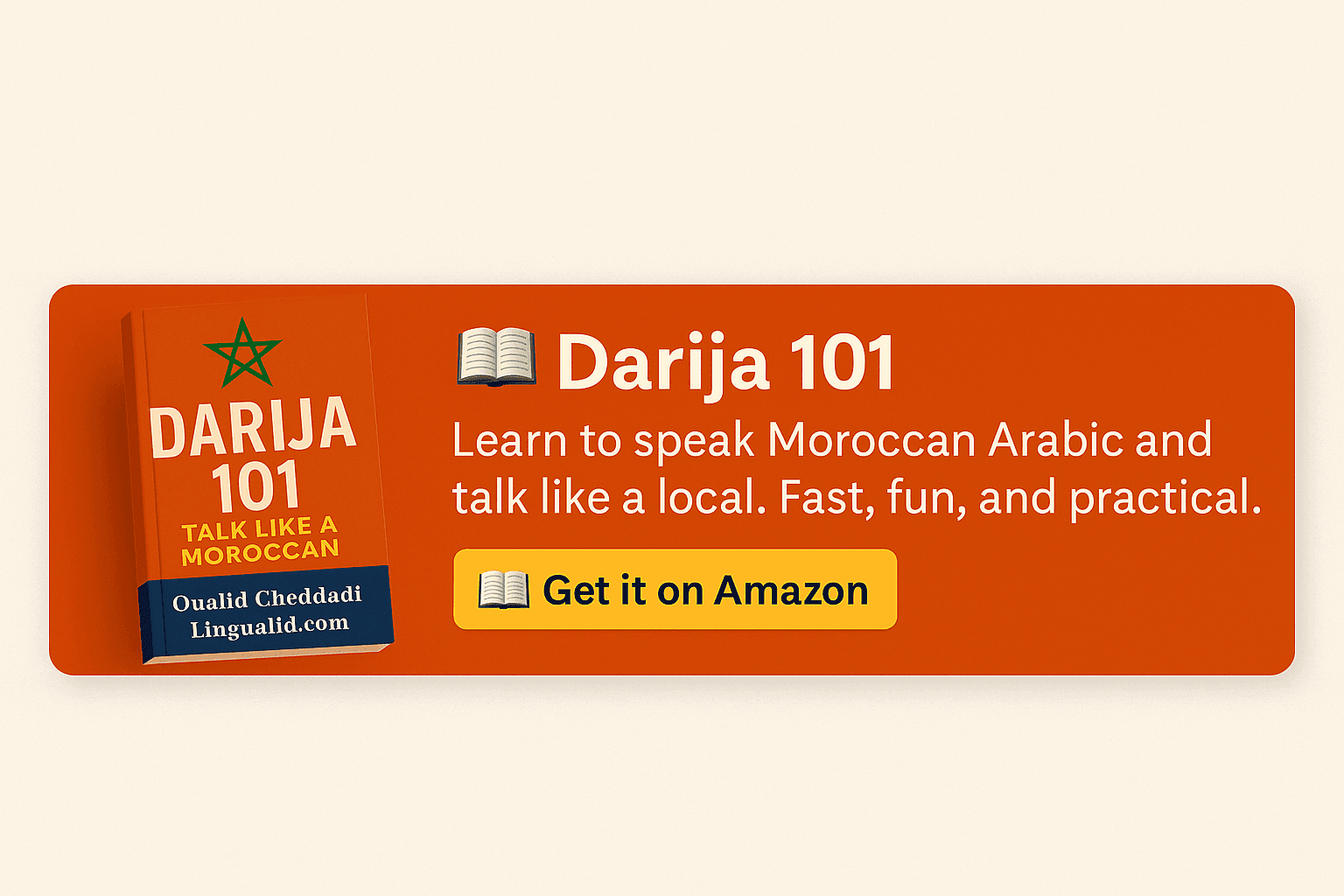
Moroccan Arabic Verb Review
Quiz
Instructions: Answer the following questions in 2-3 sentences.
- What do the abbreviations “CCC,” “CCV,” and “CVC” represent in the provided verb list? Why is this information important for learners of Moroccan Arabic?
- How is the verb “to have” (Mlek) different grammatically from verbs like “to eat” (Kla) in Moroccan Arabic?
- Provide an example of how to form a simple present tense sentence in Moroccan Arabic using one of the listed verbs.
- The list notes there is no verb for “exist.” How is existence expressed in Moroccan Arabic?
- Explain the difference in usage between the verbs “Leave (a place)” (Msha) and “Leave (something/someone)” (Khella).
- The verbs “Speak” and “Talk” both have two options listed. What are these options, and what nuance might they convey?
- What online resource is suggested for practicing the pronunciation of the verbs listed?
- What other grammatical topics are connected to the verb list and suggested as further areas of study?
- Who created the resource on common verbs in Moroccan Arabic, and what is their aim in sharing this information?
- How can you leave feedback on the provided list of common verbs in Moroccan Arabic?
Answer Key
- The abbreviations represent the consonant-vowel structure of the verbs: “CCC” signifies three consonants, “CCV” signifies two consonants and one vowel, and “CVC” signifies a consonant, vowel, and consonant. This information is crucial for learners because verb conjugation in Moroccan Arabic often depends on the root structure.
- Unlike most other verbs, “to have” (Mlek) is not a true verb but a noun in Moroccan Arabic. This means it functions differently in sentences, often requiring the preposition ” عند” (“3end”) before the possessor.
- Example using the verb “to study” (Qra): أنا تانقرا ديما. (Ana tanqra dima.) – I study always.
- Existence is expressed using the noun ” كاين” (“Kayen”), which literally translates to “there is” or “it exists.”
- “Msha” specifically means to leave a location, while “Khella” implies leaving something or someone behind. For example, one might use “Msha” to describe leaving a house and “Khella” to describe leaving a book at the house.
- The options for “Speak” are “Hder” and “Tkellem,” while for “Talk,” they are “Tkellem” and “Hder.” The difference is subtle; “Hder” may carry a more informal or general connotation, while “Tkellem” could be perceived as more formal or intentional.
- The resource recommends using Memrise, a language-learning platform, to practice the pronunciation of the listed verbs.
- The resource links to posts about the present, past, and future tenses in Moroccan Arabic, suggesting these grammatical concepts are essential to understanding verb usage.
- Oualid Cheddadi, a language enthusiast who founded the language blog Lingualid, created the resource. Their goal is to support independent language learners across the globe.
- Readers can leave feedback or comments on the verb list in the “Leave a Comment” section at the end of the online resource.
Happy learning!
Oualid Cheddadi is the founder of Lingualid, a platform that inspires independent language learners worldwide, regardless of the language they are learning. The name “Lingualid” is derived from the Portuguese word for “language,” “língua,” and the last three letters of Oualid’s name, “Lid.”

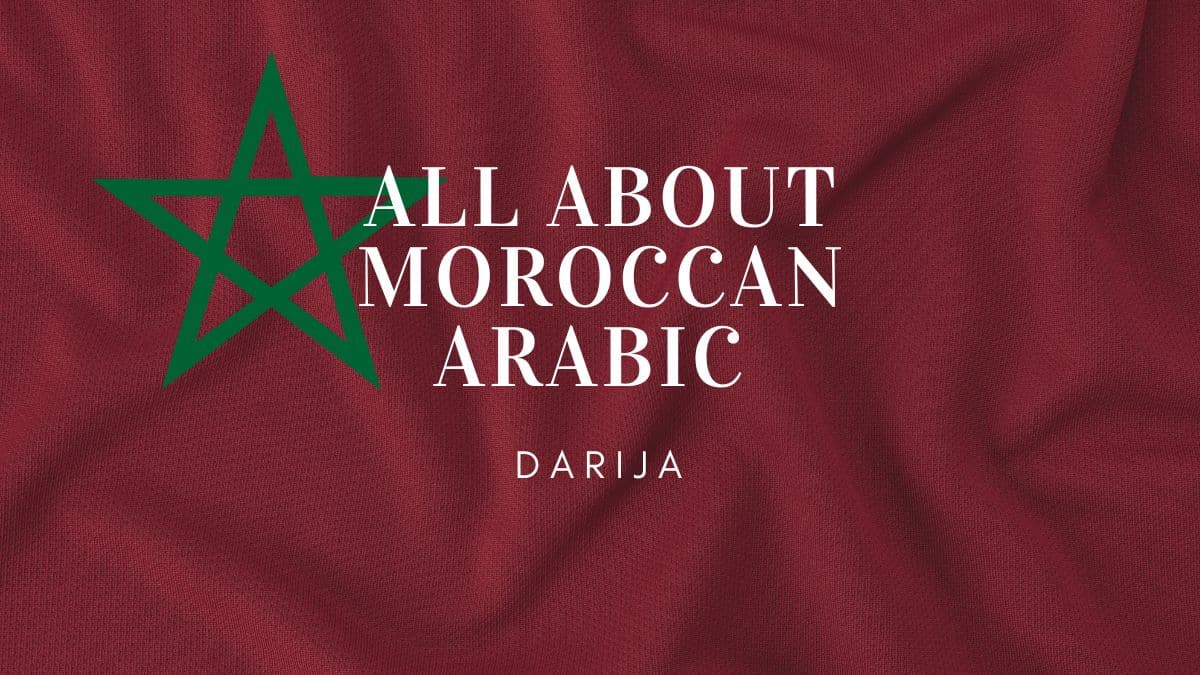
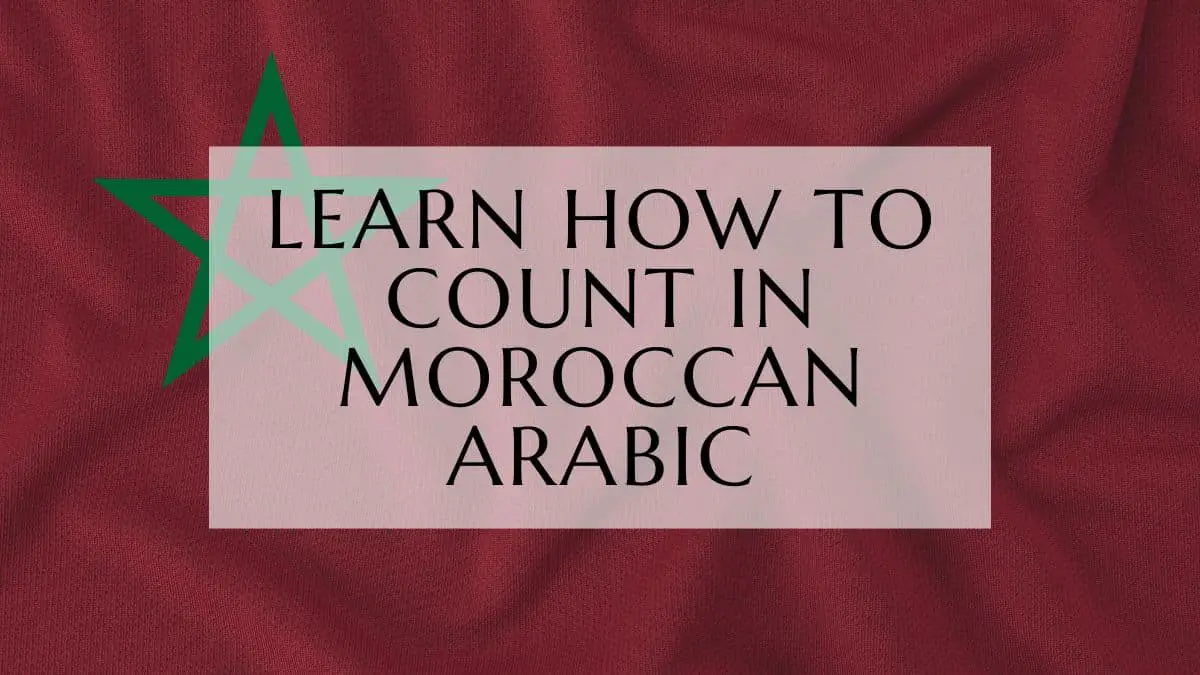
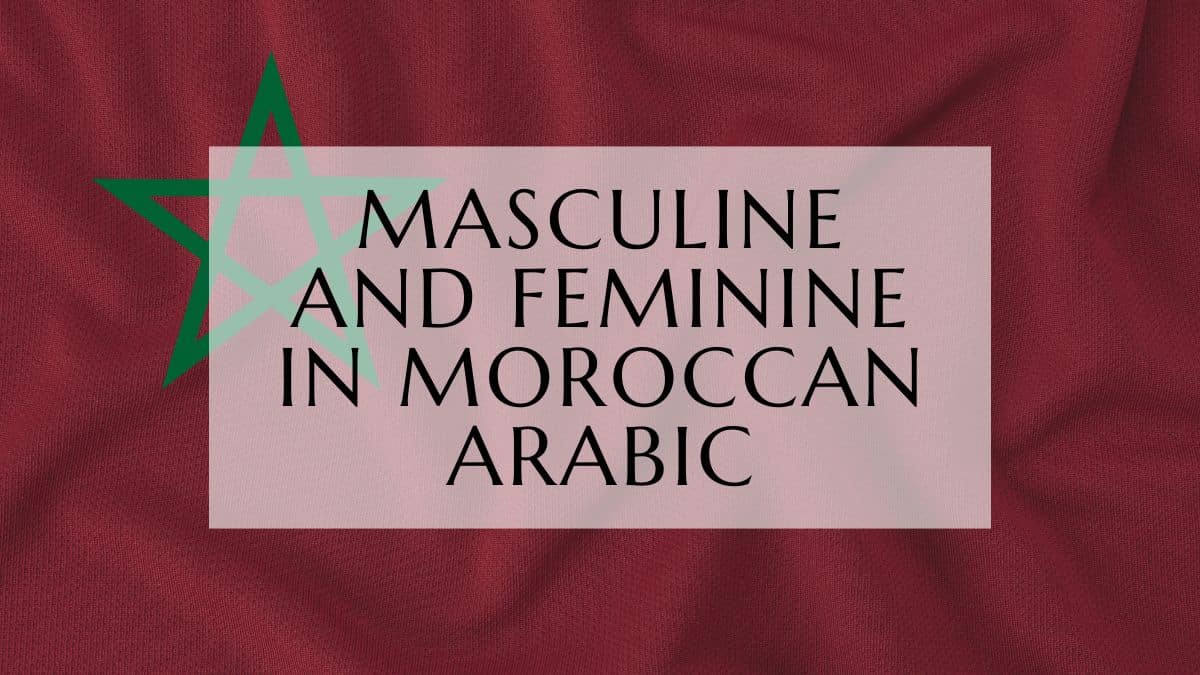
Very usual verbs, I love it. Thanks for your help.